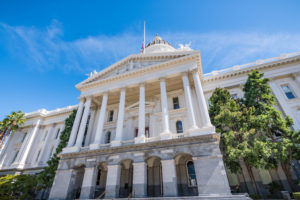 Over the last several years, the U.S. Supreme Court’s decision in South Dakota v. Wayfair has led to rule changes regarding online sales tax in almost every state in the country.
Over the last several years, the U.S. Supreme Court’s decision in South Dakota v. Wayfair has led to rule changes regarding online sales tax in almost every state in the country.
The ruling, that South Dakota’s economic nexus law was constitutional and that the state could require companies who met certain sales thresholds to collect and remit sales tax on sales to South Dakota customers, even if the company had no physical presence, has impacted states, retailers, online marketplaces and even brick-and-mortar businesses.
In this article, we’ll discuss the positive effects of the Wayfair ruling on states that have implemented Wayfair-related legislation.
Perhaps most notably, Wayfair-related legislation and economic nexus have allowed states to fare better during the pandemic than states that have not implemented it.
The pandemic resulted in an explosion of online shopping in the spring of 2020, which has persisted in the time since. Those states that have economic nexus in place have seen a drastic increase in tax revenue from online sales tax collections, especially as many retailers have triggered economic nexus in states they previously did not have nexus in.
As one example, Texas is facing budget shortfalls due to the pandemic, but it is far less than was originally projected, largely in part due to the implementation of Wayfair-related legislation.
Even before the pandemic took hold in early 2020, states have been experiencing the financial benefits of economic nexus and marketplace facilitation.
In 2018 alone, more than 20 states implemented Wayfair-related legislation, with another 20 implementing it in 2019. While not every state has reported specific numbers in regards to the increase in online sales tax revenue they have seen due to these laws, the revenue increases are pretty much across the board.
Lawmakers in the two remaining states with a general sales tax that have yet to implement economic nexus, Florida and Missouri, are pushing hard for 2021 to be the year it gets implemented.
States have also been able to cash in on additional revenue collected from marketplace facilitators. While these gains are not as impressive as the revenue from economic nexus laws, marketplace facilitation legislation has allowed states to standardize and concentrate on large marketplace facilitators as a source of tax revenue as opposed to trying to source taxes from many small online retailers.
Overall, states have largely benefited from the Wayfair decision and further advancements to economic nexus and marketplace facilitation legislation are sure to be on the way.
If you have questions regarding Wayfair-related legislation, or any other state sales tax compliance questions, please contact us today. We’re happy to clarify any multi-state tax issues you’re trying to navigate.



















